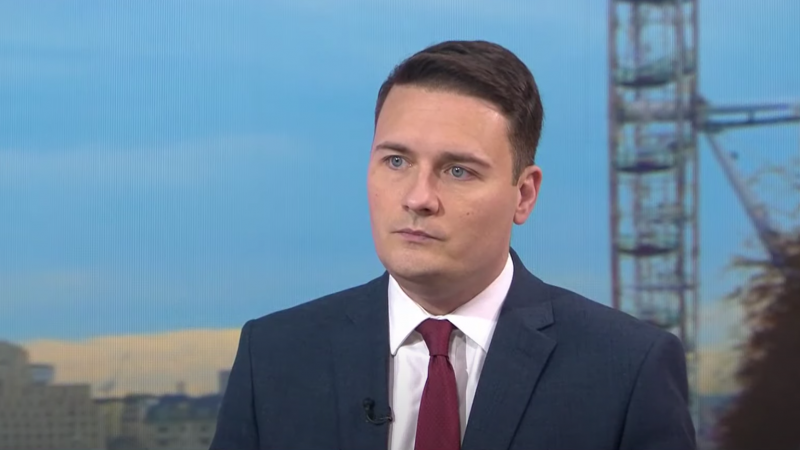
Wes Streeting has declared that NHS staff are “slogging their guts out” but there “simply aren’t enough of them” after it was revealed that the number of people in England waiting to start routine hospital treatment has risen to a record high.
NHS England figures released today show that 7.1 million people in England were waiting to start treatment at the end of September, the highest total since records began. A total of 401,537 people had been waiting more than a year, up from 387,257 at the end of August.
The Shadow Health Secretary said: “Millions of patients are waiting months and even years for treatment, often in serious pain and discomfort. In an emergency, patients are left waiting hours for an ambulance or entire days in A&E. For many, this means being unable to work and putting their lives on hold.
“The NHS is now approaching winter with the longest waiting times in its history and record shortages of staff. NHS staff are slogging their guts out, but there simply aren’t enough of them.
“Labour will ensure patients are treated on time again. We will train a new generation of doctors and nurses, paid for by abolishing the non-dom tax status.”
The latest figures from NHS England reveal that a record number of people are waiting at least four hours in A&E, hitting 150,922 in October, up from 131,861 in September. A total of 43,792 people waited longer than 12 hours in October, up 34% on the previous month.
The operational standard for A&E waiting times – introduced by Labour in the early 2000s – is that at least 95% of patients should be admitted, transferred or discharged within four hours.
According to a King’s Fund report in May, the NHS has not met the four-hour standard at national level in any year since 2013/14, and the standard has been missed in every month since July 2015.
The think tank said waiting times have “worsened substantially” in recent years and attributed the decline to a “decade of funding settlements that failed to keep up with demand for services and growing staff shortages”.
NHS medical director Sir Stephen Powis said there was “no doubt” October has been a “challenging month”, highlighting that staff are facing a “tripledemic of Covid, flu and record pressure on emergency services”.
He added: “Pressure on emergency services remains high as a result of more than 13,000 beds taken up each day by people who no longer need to be in hospital. But staff have kept their foot on the accelerator to get the backlog down, with 18-month waiters down by three-fifths on last year.”
Streeting announced at Labour conference that the party will deliver a ten-year plan for change and modernisation in the NHS, including a significant boost in the healthcare workforce, to make the health service “fit for the future”.
The Labour frontbencher told conference that the state of the health service in Britain is an “absolute disgrace” and that the “principle of an NHS publicly funded, free at the point of use” is “under attack”.
The number of vacancies in the NHS hit a record high of more than 130,000 earlier this year. Commenting at the time, NHS Providers interim chief executive Saffron Cordery said the figures were “staggering” and “further proof that the NHS simply doesn’t have enough staff to deliver everything being asked of it”.
The Royal College of Nursing (RCN) confirmed on Wednesday that nurses across many hospitals and other NHS care settings have voted to strike – for the first time in the organisation’s 106-year history – in a dispute over pay.
General secretary Pat Cullen said “anger has become action” and warned that “our members are saying enough is enough”. She added: “Our members will no longer tolerate a financial knife-edge at home and a raw deal at work.”
Commenting on the figures today, Sharon Graham argued that the government “appears hell bent on destroying the NHS” and warned that the health service is “at breaking point”. She added, however, that the unions are “fighting back”.
“We hear daily horror stories from ambulance workers who are currently voting on strike action. 18-hour shifts, ambulance workers stuck in queues outside hospitals unable to respond to emergencies,” the Unite general secretary said.
“Workers report how a lack of hospital beds mean that doctors are even being forced to treat patients on ambulance stretchers. Meanwhile, workers can’t afford the basics and many are leaving the service.”




More from LabourList
Turning the page? Labour’s recovery in the polls show a path to 2029 victory
Restoration announce recommendations for NEC candidates
‘Factionalism at the top is weakening Labour – and handing a gift to Reform’